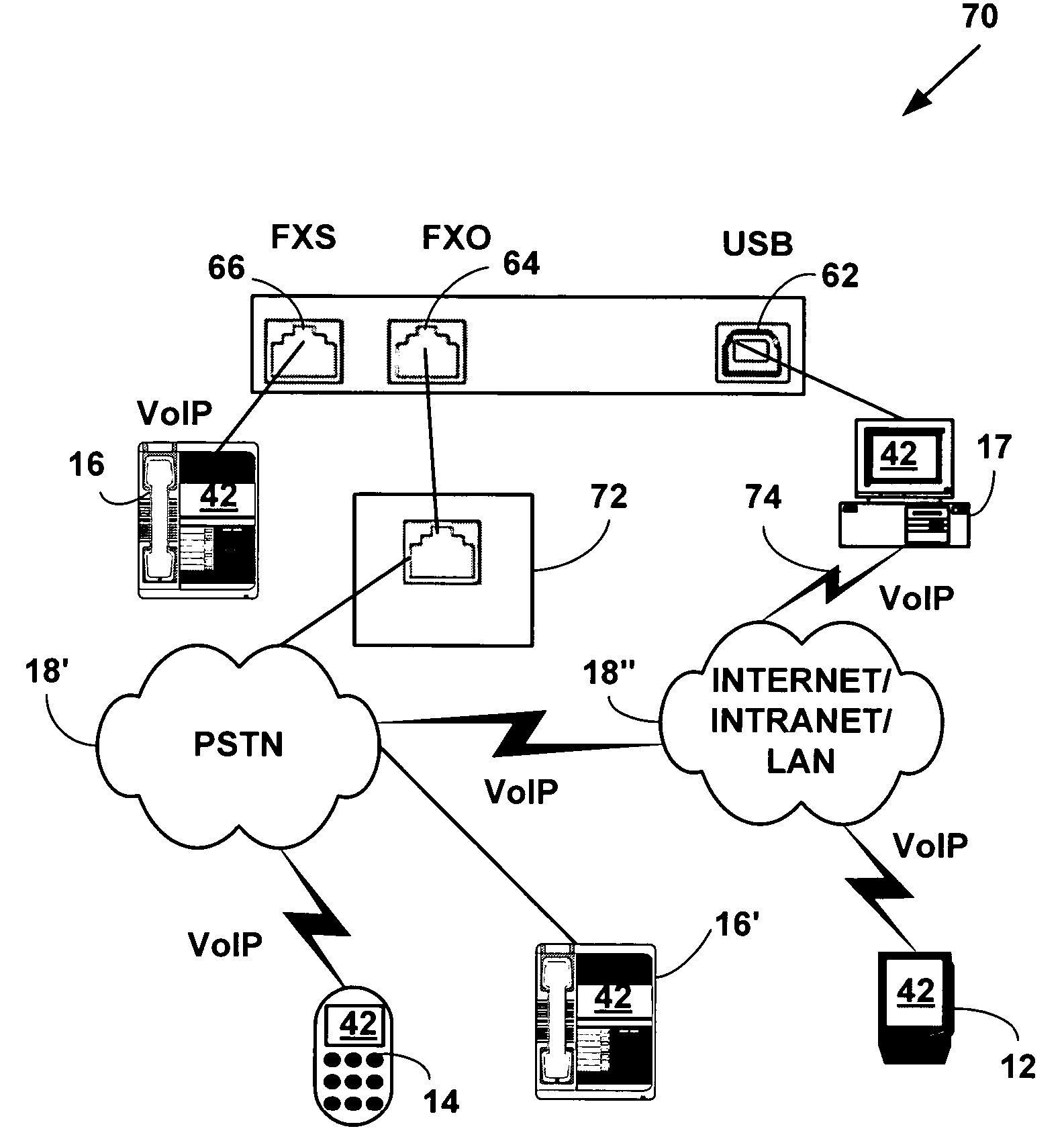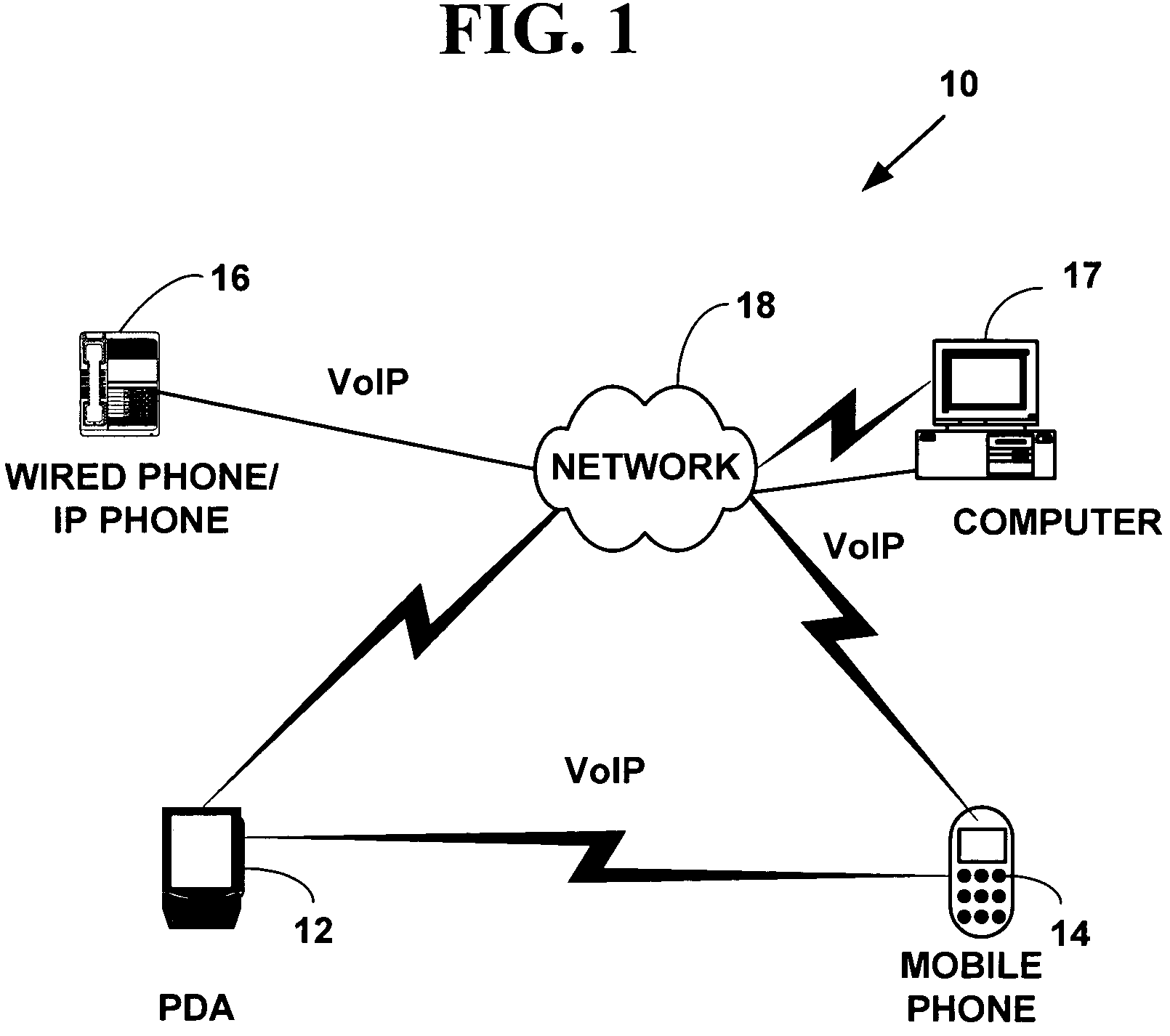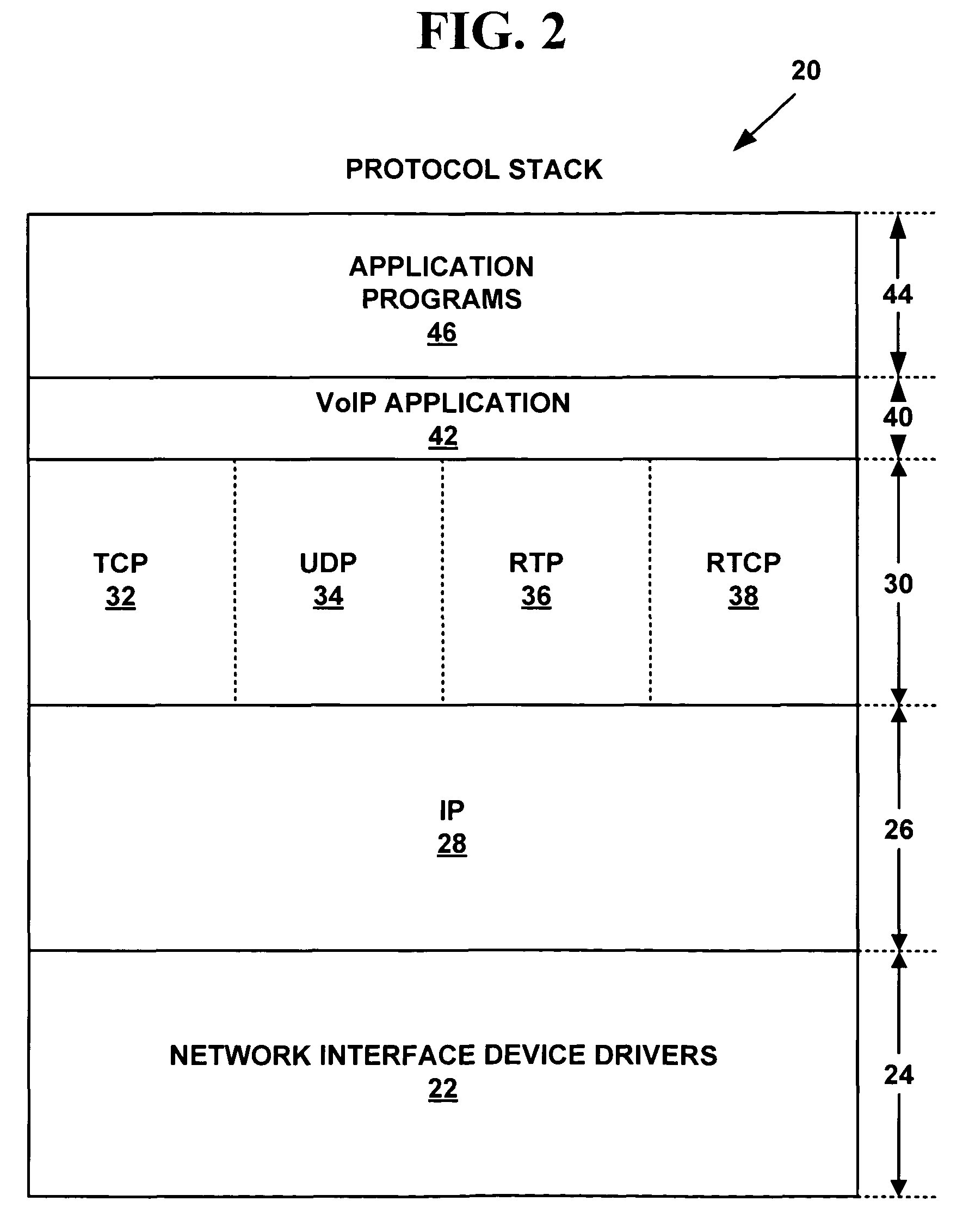However, practical applications only began once
the Internet came into widespread use.
The PSTN which has been around for many decades is based on dedicated circuit-switched technology; even when a telephony device, such as a home or office phone, is not in use the dedicated circuit-switched technology remains in place and is unused, “
wasting” resources.
The hardware solution that allowed for such efficiency, however, has remained in the realm of the
business enterprise, and direct access to the technology has been software-based and very primitive in the
consumer market.
Such a voice conversation required having a computer running the same software on both ends, and generally would not allow calls to or from regular telephones or telephone numbers.
The more enterprise-oriented / standards-based softphones such as PhoneGaim, Xten's Xlite, Pulver Communicator, SJLabs's
softphone, and others can be connected to VoIP carriers to place and receive calls to other SIP users and the PSTN for a fee, but this capability is not integrated into the
Software.
While the technology and
quality of service in this realm has advanced, the basic capabilities and limitations of such software solutions remain the same.
However, the user is still restricted to accessing the VoIP service through the physical hardware of a computer.
There have been attempts to connect such software to a VoIP adapter to use them with regular phones and phone lines, but these devices such as the Siemens Gigaset and adapters from Cuphone and PCPhoneLine only work as adapters with other software and therefore can't offer advanced functionality, nor are they gateways between VoIP and the PSTN.
The reasons for this include the large cost and nature of devices, the dedicated hardware required, and the technical knowledge required to set up the underlying network.
However, unlike the capabilities of the aforementioned enterprise systems, users are not able to directly interconnect their devices or access a local
telephone line through the device because the calls are routed through remote servers which connect consumers' VoIP adapters to the PSTN.
Recently adapters from manufacturers such as Sipura, Vegastream, Grandstream, i2Telecom, and Leadtek have expanded to include both connections to a regular phone set and a user's existing phone line, but many do not have gateway functionality to bridge these to and / or from VoIP services or any way to easily connect directly to other users.
In addition, no
service provider currently allows these devices to function as gateways on their networks.
Bellster is one such site where users can share their lines, but again, it is restricted to
Asterisk and has little or no control capabilities or
integrated Software.
However, such platforms are very hard to get set up, require specific hardware, and technical knowledge of Linux based PBX VoIP systems.
Prototypes of such gateways exist, but are limited because they are not integrated with any VoIP
Software / network and don't include basic telephony features such as both connections to a telephone
handset and a line, caller ID,
voltage monitoring, or line
impedance matching.
One of the major problems has been tackling the issue of firewall traversal, which has traditionally been solved by connecting through a dedicated
server which proxies signals to and from you to other users.
In addition, spam over Internet telephony (SPIT) and spam over
instant messaging (SPIM) have become greater problems, namely because the user has to make a decision on whether or not to accept without knowing anything about the sender or the actual data itself.
This concept has been implemented before with Vipol's Razor and Cloudmark, but has not been adopted in a peer-to-peer network that would allow its growth to flow unencumbered.
In addition, current systems do not do automatic rating of e-mails or identities.
Current VoIP softphones can be used with
Bluetooth headsets, but none of these programs actually have built-in support for making or receiving calls from a
headset, such as a
mobile phone that is within range.
Ideally,
mobile phone users would be able to directly connect to other users over a packet-switched connection such as GPRS, but currently this is too expensive and there are no softphones available that have this capability.
Another patent is U.S. Pat. No. 6,665,293 (2003), “Application for a
voice over IP (VoIP) telephony gateway and methods for use therein.” This patent describes a
network topology using PBXs, but the network is not connected to a user's computer and cannot be configured using
Software.
Instant-messenger based VoIP software exists today, but is limited in functionality.
However, these inventions still do not solve all of the problems associated with VoIP communications.
 Login to View More
Login to View More  Login to View More
Login to View More 


